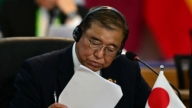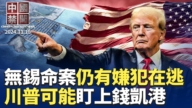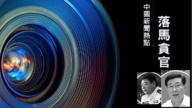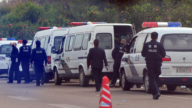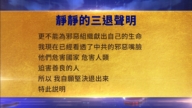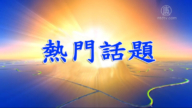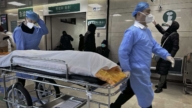【新唐人2013年06月12日讯】6月10号,中共党媒发表署名文章,说中共官二代接班现象,严重解构中共执政的合法性,并批评掌权者不但自己选自己,现在索性就在自己的儿子、孙子、亲戚、朋友中选继承人。评论分析,中共党内正在上演一宗错综复杂的宫廷大戏,这篇文章的出笼,明着,是在打击世袭制,暗地里,则是在影射中共国家主席习近平。
《学习时报》这篇文章说,近几年,越来越多的消极腐败现象被揭露出来,其中,最为人诟病的现象是官二代接班,不时有消息见诸报端:某书记的公子当了副县长,某市长的女儿当了副书记,某主任的女婿当了常委等等。
文章说,掌权者不但自己选自己,而且现在索性在自己的儿子、孙子、亲戚、朋友中选。这种现象严重解构了中共执政的合法性。
中国资深法学专家赵远明表示,共产党的所谓政权,本来就是非法窃取,更谈不上执政合法性。所以为了保持权力在握,就搞子承父业,搞独裁世袭。
中国资深法学专家赵远明:“你看现在不光是官二代了,官三代、官四代,甚至官五代都已经有了,就是这些年轻人,没什么政绩、也没什么经历,就是靠家庭血源关系,有一个好爹,或者好爷爷,那么就来当官。”
习近平和中纪委书记王歧山等人,都是中共元老的后代,被归类为“太子党”,也属官二代。近期,有关前中共党魁邓小平之孙邓卓棣,担任广西平果县副县长﹔以及叶剑英曾孙叶仲豪,担任广东云浮市团委书记的报导,引发了舆论关注。
北京时政观察人士华颇指出,这篇文章背景复杂,用意值得深思。虽然现在中共的“世袭现象”非常严重,但他认为,这是“上梁不正下梁歪”。
北京时政观察人士华颇:“否定这种世袭来讲,这不就否定老大习近平了吗?再说了,这种私相授受来讲,这是中共体制的本质,中共领导人哪个是选举﹖老百姓推荐的﹖经过民主选举上来的?都不是,都是内定的,习近平上来就是内定的。这篇文章的出笼,是党内的一些人明着打世袭,暗地里在影射习近平。”
5月31号习近平出国访问,短短4天内,东北三省发生3起大火﹔同时,中共党刊连登数篇否定“宪政”的文章﹔以及“六四”前,大肆抓捕所谓社会敏感人士等等。华颇认为,这一系列事件,绝非巧合,而是有些人有预谋的针对习近平本人,所采取的打击措施。
华颇:“中共党内原教旨主义者在党校中、在宣传、在组织、在政法这些部门当中,根基是相当庞大的,而且现在既得利益群体和左派结为一体,左派对习是不信任,既得利益集团对习是不满意,所以他们两家可以说已经联合起来了,估计现在中共党内正上演一出错综复杂的宫廷大戏。”
时政评论员石涛认为,习近平的位置跟中共利益集团的冲突,已经走向了公开化。
时政评论员石涛:“6月3号的下午6点多,习近平的朋友、《香港阳光周刊》的老板陈平,在自己办公楼下面,被两个专业人士袭击了,打伤了,他自己的办公室挂着他和习近平两个人的照片,他们自己的家族之间是有联系的,打陈平就是打习近平。”
石涛表示,再加上,习近平主政最长的厦门,最近发生的公车爆炸案,显然中共高层之间的打斗,已经激化到了人身攻击。他认为,目前习近平未必完全掌控局面。
采访编辑/李韵 后制/李勇
Chinese State Media Severely Criticizes CCP Heredity System
On June 10, Chinese Communist Party
(CCP) state media published a signed article.
It said the succession of CCP princelings has
seriously deconstructed its legitimacy of rule.
It criticized that rulers elect themselves, and select their
successors from their sons, grandsons, relatives or friends.
It was commented that a court drama
was played out on stage within the CCP.
This article apparently critiqued the hereditary
system, but in fact, it alluded to President Xi Jinping.
The article, published in ‘Study Times’, said that
more and more corruption has been revealed recently.
Among them, the most criticized phenomenon
is the hereditary of CCP officials progeny.
From time to time, news surfaces that relates to this issue.
The son of a party secretary takes
the position of deputy magistrate.
The daughter of a mayor takes the
position of deputy CCP secretary.
The son of a director joins the Standing Committee, etc.
The article mentioned that rulers not only elect
themselves, but also select successors from
their own sons, grandsons, relatives or friends.
The phenomenon has seriously
effected the CCP’s legitimacy of rule.
Zhao Yuanming, a senior legal expert in China,
said that the so-called regime is stolen by CCP.
It is far from legitimate, and in order to keep power in their
hands, the CCP runs it’s dictatorship through heredity.
Zhao Yuanming: “It is not only the second
generation that power is passed to.
It is now the third, the fourth and even the fifth generation.
These young people, they don’t have
political achievements or experiences.
They rely on family blood relations – they have a powerful
father or powerful grandfather, and they become officials.”
Xi Jinping, and Wang Qishan, the CCDI secretary are
CCP elders’ offspring, and belong to the “princelings”.
This means they also belong to ‘officiallings’.
Recently, Deng Zhuodi, grandson of former
CCP leader Deng Xiaoping took the position
of Deputy Magistrate in Pingguo County in Guangxi.
Ye Zhonghao, great-grandson of Ye Jianying took the
position of Youth League secretary in Fuyun, Guangdong.
These reports sparked public concern.
Hua Po, a Beijing-based political observer highlights
that the background of this article is complicated.
The intention behind it is worth pondering.
The hereditary phenomenon is very serious. However,
he felt that “a crooked stick throws a crooked shadow”.
Hua Po: “If you disagree with this hereditary, doesn’t
it mean that you disagree with the leader, Xi Jinping?
Besides, this favoritism is the nature of the
CCP system. Which CCP leader was elected?
Were they elected by people’s recommendations,
or perhaps by democratic elections? No they weren’t.
They were all decided at the higher levels, including Xi.
This article appeared to critique the hereditary system,
but in fact, it actually alluded to CCP President Xi Jinping.”
Xi Jinping travelled abroad on May 31.
During his time away, three serious fire incidents occurred
in the northeastern provinces in China, within four days.
At the same time, several articles were published through
CCP media, stating to go against “constitutionalism”.
Before “June 4”, the authorities wantonly arrested
people, including so-called sensitive persons.
Hua Po thought that it was not a
coincidence with this series of events.
These events are counter-measures to
Xi Jinping, conducted by premeditated means.
Hua Po: “There are many CCP fundamentalists
in Party schools, the propaganda departments,
the organization department, the Politics and
Law Committees and related sectors.
Their foundation is enormous, and now the vested
interest groups and leftists have joined together.
The leftists distrust Xi Jinping. The vested
interests groups are dissatisfied with Xi Jinping.
Therefore, these two groups combine together. A
court drama was played out on stage within the CCP.”
Commentator Shi Tao thinks that Xi’s position
is in conflict with the CCP interest groups.
The conflicts have gone into the open now.
Shi Tao: “Around 18:00 on June 3, Xi Jinping’s friend
Chen Ping, the boss of Sun Affairs Weekly,
was attacked by two professionals outside his office.
He was wounded. There is a photo of Xi Jinping and Chen
in this office, and Chen has a relationship with Xi Jinping.
To attack Chen Ping also means attacking Xi Jinping.”
Shi Tao said that the recent bus bombings in Xiamen,
where Xi Jinping ruled for a considerable time within his career,
indicates fighting between the upper echelons
of the CCP has escalated into personal attacks.
He said that Xi Jinping may not be in
complete control over the situation.


